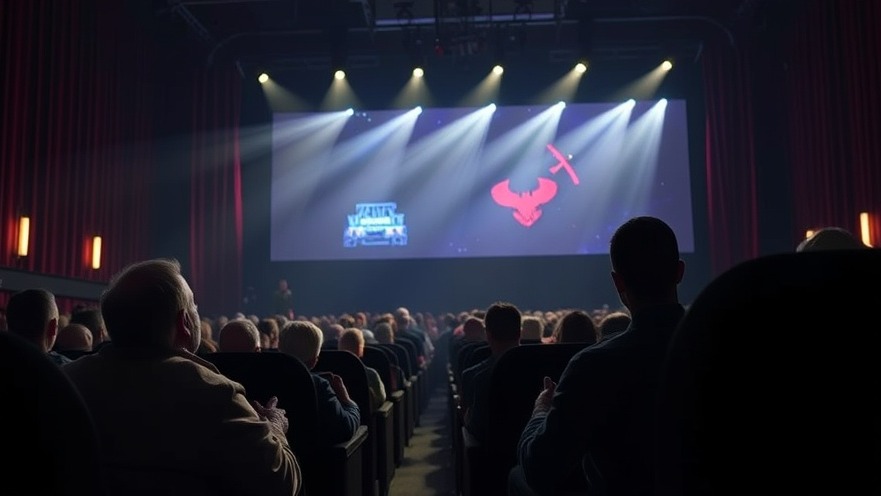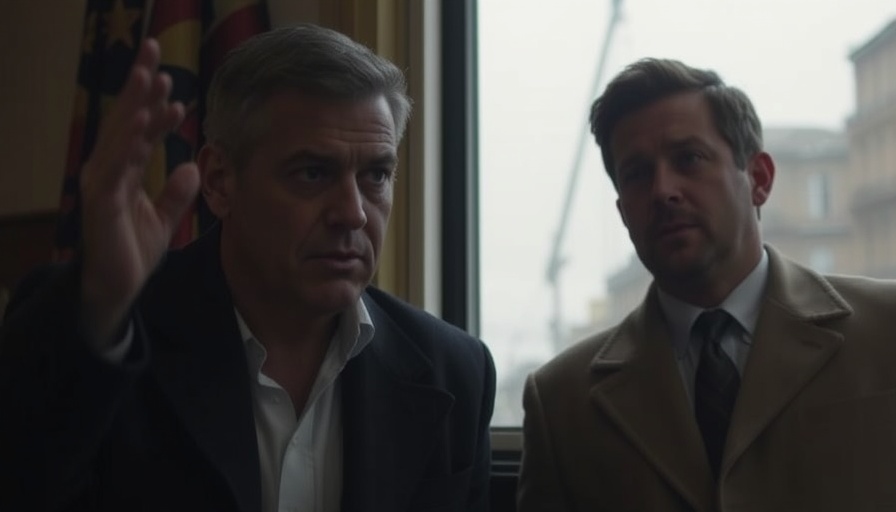
A Comical Look at TV’s Most Puzzling Plot Twists
As fans of iconic television shows, we've come to expect brilliant storytelling peppered with relatable characters. But what happens when plotlines take an unexpected turn, leaving viewers scratching their heads? This is exactly what happens in HBO's And Just Like That, where character Lisa’s father has died for the second time. How did we get here, and what does this trend say about the nature of storytelling in long-running series?
A Little Background on the Current TV Landscape
Long-running TV series often take creative liberties to keep audiences engaged. Shows like Friends and Frasier have experienced their share of continuity errors. For example, the introduction of Monica's friend Rachel could lead viewers to believe it was the first encounter, despite evidence suggesting otherwise. When such discrepancies arise, they challenge our emotional investment and sometimes cause us to question the integrity of the narrative. Is it lazy writing, or simply a consequence of the complex web of plot threads that develop over a show’s run?
Troublesome Trends: Why Even Great Shows Slip Up
When it comes to continuity, television writers face challenges, especially with ensemble casts. Characters are introduced, backstories evolve, and unexpected plotlines emerge--all contributing to potential inconsistencies. While it may seem like 'plot holes' arise due to a lack of attention, they can also resonate with the human condition: sometimes we forget the details of our own stories.
Shocking Repetition in TV Narratives
The idea of resurrecting dead characters isn't new in the world of television. Often, these strategies are employed for shock value—capturing attention where a lack of innovation is perceived. HBO's And Just Like That follows suit with Lisa's father making a second appearance in the story. Critics argue that “lazy writing” tarnishes character depth, yet is this an inevitable trend as shows stretch their plots to remain relevant? In today’s fast-paced media, is it becoming normative for shows to lean towards shocking narratives rather than coherent storytelling?
Connections to Culture and Viewer Interaction
Understanding plot inconsistencies can provide insight into contemporary culture. Digital nomads, who often embrace diverse storytelling from around the globe, may see multiple perspectives where repeated deaths appear. As storytelling evolves, so might viewers’ tolerance for absurdities like these. Would a nomadic audience still connect to the essence of a show, or does it require a consistent narrative to maintain engagement?
Analyzing Viewer Expectations and Reactions
Audiences develop specific expectations when they become attached to characters over time, desiring authenticity and engagement. Mixed messages in continuity might lead to frustration. How should television networks balance the fine line between creativity and coherency? In fostering engagement, do they risk alienating passionate viewers by dismissing continuity?
Finding Humor in the Absurd: Much-Needed Relief
Though shocking plot twists can spur debate, they can also serve as comic relief in an era filled with serious themes. In the case of And Just Like That, the conversation around repeated deaths leads to light-hearted discussions amongst fans. During the uptight clime of relentless news cycles, a shared laugh over Hollywood plot devices can alleviate the tension. Thus, can we embrace these absurdities, viewing them through a humorous lens, which ultimately leads to group cohesion, especially amidst the global challenges faced by digital nomads?
In conclusion, exploring the bizarre narrative choices made by television series like And Just Like That and drawing parallels with classics such as Friends presents a unique perspective on an intricate medium. Cherishing both quaint charm and outrageous plotlines can deepen our appreciation for storytelling and enhance our viewing experience. Next time you encounter a shocking plot twist, think about the laughter it might inspire and whether it mirrors a broader reflection of our shared human experiences.
 Add Row
Add Row  Add
Add 




Write A Comment